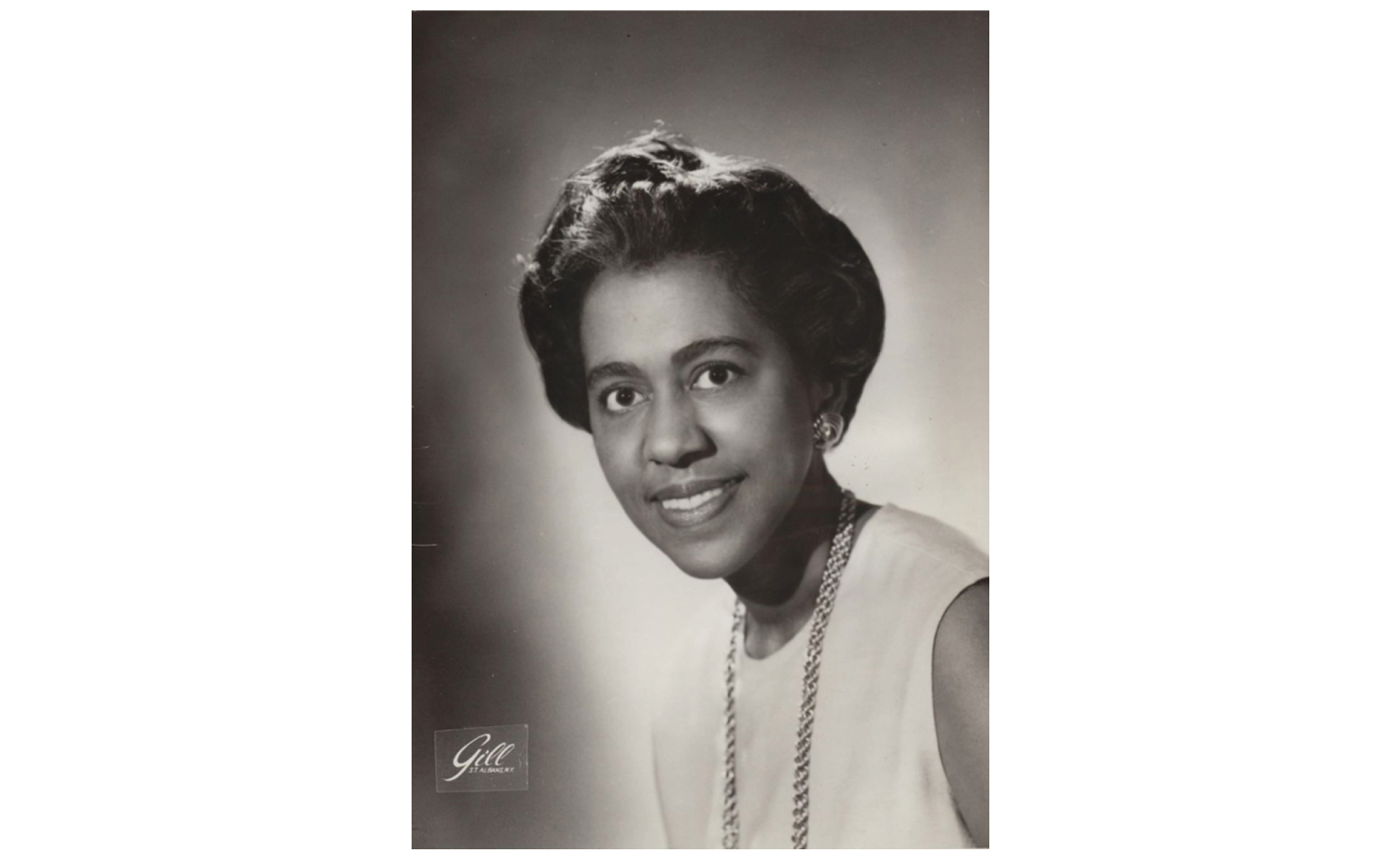Ceremony Honors Dr. Marie Maynard Daly, the First Black Woman in the U.S. to Earn a PhD in Chemistry

On Friday, May 19, 2023, more than 200 people gathered in Havemeyer Hall to honor the legacy of biochemist Dr. Marie Maynard Daly, the first Black woman in the U.S. to earn a PhD in chemistry from Columbia University Graduate School of Arts and Sciences in 1947. High school students, professional chemists, scholars, and scientists from all over the country came to join the ceremony, as the American Chemical Society declared Havemeyer Hall a National Historic Chemical Landmark in Dr. Daly’s name.
Marie Maynard Daly was born in 1921 and grew up in Queens, NY. Her father, who came to the United States from the West Indies, studied chemistry at Cornell University but never completed his degree. Marie Daly showed an interest in science from an early age, attending Manhattan’s Hunter College High School for gifted girls, where the curriculum emphasized math and science. Then Daly studied chemistry at Queens College, where she graduated with honors among an almost-all-White student body. She wanted to do more advanced research, but graduate schools were mostly a place for men. In 1943, with World War II looming, New York University accepted more women than ever—including Marie Maynard Daly. She got her Master’s degree in one year, then was accepted into the PhD program at Columbia University. Daly joined the lab of Dr. Mary Caldwell, the sole female professor in Columbia’s chemistry department. Daly completed her dissertation, “A Study of the Products Formed by the Action of Pancreatic Amylase on Corn Starch,” in three years.
Dr. Daly went on to teach and do important research in the decades to follow. At Rockefeller University, she explored the architecture of proteins, co-authoring a study that illustrated how protein production requires RNA. That key study was cited in Dr. James Watson’s Nobel Lecture, when he won the prize for Physiology or Medicine in 1962. At the Columbia University College of Physicians and Surgeons, Dr. Daly also did groundbreaking research on the links between atherosclerosis, aging, and high blood pressure. In 1960, Daly started teaching biochemistry at the Albert Einstein College of Medicine, where she would be tenured. Throughout the ’60s and ’70s, she continued to collaborate in research on cholesterol, hypertension, and other factors leading to heart attacks. Daly later returned to her original interest in the study of enzymes. She published her last paper as a sole author in 1985, before retiring. More details on Dr. Daly’s life and work can be found here.
At the American Chemical Society dedication ceremony last week, two Columbia faculty members addressed the group. Dr. Ann McDermott, chair of the Chemistry Department, spoke briefly and told the American Chemistry Society members, “You have done a mitzvah!” in recognizing Dr. Marie Maynard Daly and honoring her work with this historic landmark. Dr. Carlos Alonso, the dean of the Graduate School of Arts and Sciences, spoke about characterizing Dr. Daly and others like her as “catalyst for change”: “A catalyst is a substance that is added to a solution to trigger a reaction, at the end of which the catalyst itself is left unchanged. And yet, we know for a fact about the enormous human cost, the ceaseless vulnerabilities, sacrifices, and indignities involved with being the first. … For scholars who are under constant scrutiny because of their race, ethnicity, or gender, even small mistakes have the potential to be interpreted as personal failings attributable precisely to their ethnicity, race, or gender.”
Dean Alonso distributed copies of historical documents from the Columbia University Archives to help connect the past to the present day: he showcased the page of the 1947 Commencement program listing Dr. Marie Maynard Daly’s name, and the dissertation defense card signed by the members of the committee and filed with the Dean of the Graduate Faculties immediately after Dr. Daly’s successful defense.
After the opening remarks, several science professors of color spoke about their work and the ways in which Dr. Marie Maynard Daly inspired them. Among the speakers were Dr. Linda Meade-Tollin of the University of Arizona, Dr. Sabrina Collins of Lawrence Technological University, Dr. Mandë Holford of Hunter College in NYC, and Dr. Marc Walters of New York University. The symposium ended with the dedication of the National Historic Chemical Landmark plaque. As high school students posed around it, many of them from the SEED summer program, it was clear that the story of Dr. Marie Maynard Daly is influencing a new generation—maybe even future Columbia PhD students in chemistry.
